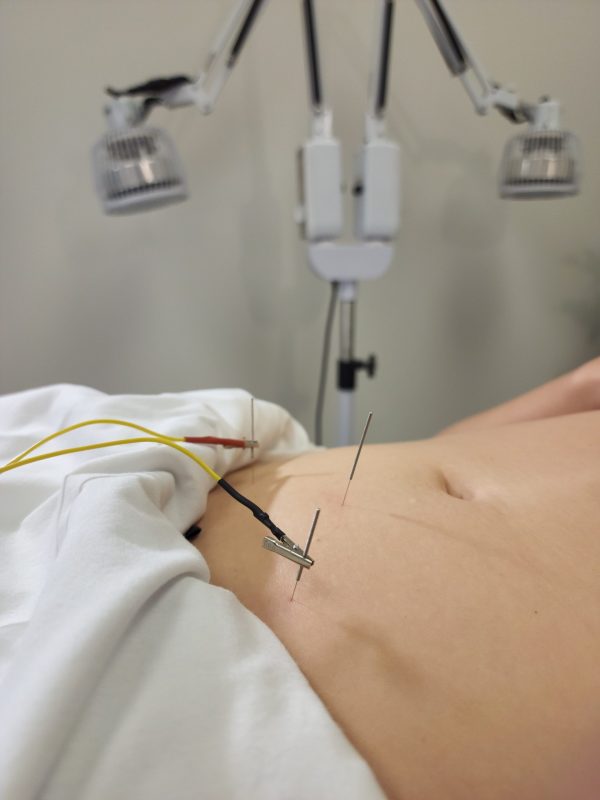Exploring the Evidence-Based Benefits of Acupuncture for Mental & Emotional Health
Mood swings. Anxiety. Irritability. Sadness. Stress. Frustration. Fear. Worry. Depression.
Sound familiar? If you’ve been navigating the ups and downs of modern life, chances are you’ve experienced at least one of these symptoms associated with mental and emotional health. In today’s fast-paced world, taking care of our mental health has become increasingly important.
While traditional treatments like therapy and medication can play a vital role in the management of mental health disorders, other approaches are also gaining recognition for their potential benefits in treatment from a more holistic point of view.
Acupuncture, an evidence-based practice rooted in the ancient wisdom of Traditional Chinese Medicine (TCM), has captured the attention of many seeking support. In this blog post, we will explore the evidence-based benefits of acupuncture for mental and emotional health. So, sit back, take a deep breath, and let’s dive into how acupuncture can help us find more balance amidst our busy lives.
Let’s Explore the Evidence-Based Benefits of Acupuncture for Mental Health
When receiving an acupuncture treatment, the focus of your practitioner will be on helping to treat your particular symptoms and condition. Benefits of consistent acupuncture treatments can include:
1 – Regulation of Neurotransmitters
Neurotransmitters play a crucial role in maintaining mental health by facilitating communication between brain cells. Research suggests that acupuncture may help regulate the levels of neurotransmitters such as serotonin, dopamine, and norepinephrine. By influencing these chemical messengers, acupuncture can potentially alleviate symptoms of depression, anxiety, and other mental health conditions.
2 – Reduction of Stress and Anxiety
Acupuncture has been shown to activate the parasympathetic nervous system, promoting relaxation and reducing the body’s stress response. Studies indicate that acupuncture can lower cortisol levels (the stress hormone) and increase the production of endorphins, which are natural mood elevators. These effects can help individuals manage stress, anxiety, and the associated symptoms.
3 – Improvement in PMS Symptoms
Acupuncture has been shown to improve mood-related PMS symptoms such as irritability, sadness, anxiety and mood swings. Acupuncture has also been shown to improve overall stress levels, which has a significant impact on the regularity and quality of the menstrual cycle.
4 – Improvement in Sleep Quality
Quality sleep is essential for mental health, as it allows the brain and body to rejuvenate and restore balance. Acupuncture has been found to positively influence sleep patterns by promoting the production of melatonin, a hormone that regulates sleep-wake cycles. If pain or discomfort contributes to insomnia, acupuncture can help alleviate pain symptoms, enabling better sleep quality.
5 – Management of Post-Traumatic Stress Disorder (PTSD)
Acupuncture has been studied as a complementary therapy for PTSD. It has shown potential in reducing symptoms such as anxiety, hyperarousal, and flashbacks, as well as improving overall well-being and quality of life. Working with a practitioner who has received trauma-informed care training is recommended.
6 – Improved Quality of Life in PCOS and Endometriosis
Acupuncture has been shown to reduce anxiety and depression in folks with PCOS, and has been shown to reduce stress and increase overall mental health in folks struggling with endometriosis.
7 – Support for Cognitive Function
Some studies suggest that acupuncture may have cognitive benefits, such as improving memory, attention, and executive functions. It may help enhance brain activity and neuroplasticity.
Acupuncture as a Complementary Approach to Mental Health Treatment:
While acupuncture has incredible benefits, both mentally and physically, it is important to recognize that it is a complementary approach to mental health. It can be used alongside therapy and medication to enhance overall well-being and improve treatment outcomes. Many folks find acupuncture sessions to be relaxing, providing a space for self-reflection, stress reduction, and emotional release. This integrative approach can address both the physical and emotional aspects of mental health, fostering a holistic healing experience.
Whether you’re interested in acupuncture to reduce stress and anxiety, seeking relief from PMS, or simply in need of a way to relax and unwind, acupuncture may be the therapy for you. To learn more about acupuncture, you can book an initial appointment or a free 15 minute consultation with me here.
Disclaimer: Tips and suggestions mentioned in the article are for educational purposes only and should not be construed as professional medical advice. Always consult your main healthcare provider if you are experiencing any of the symptoms outlined in this article.




